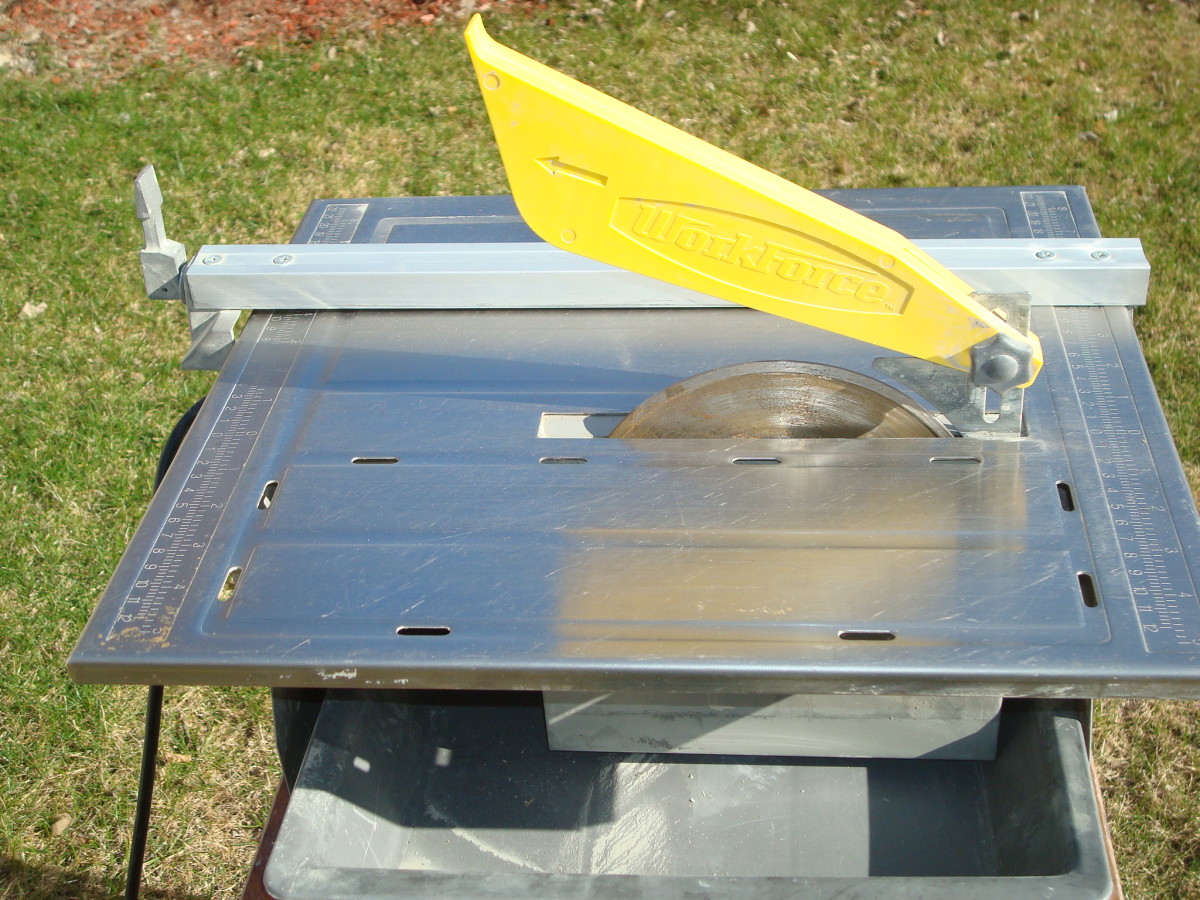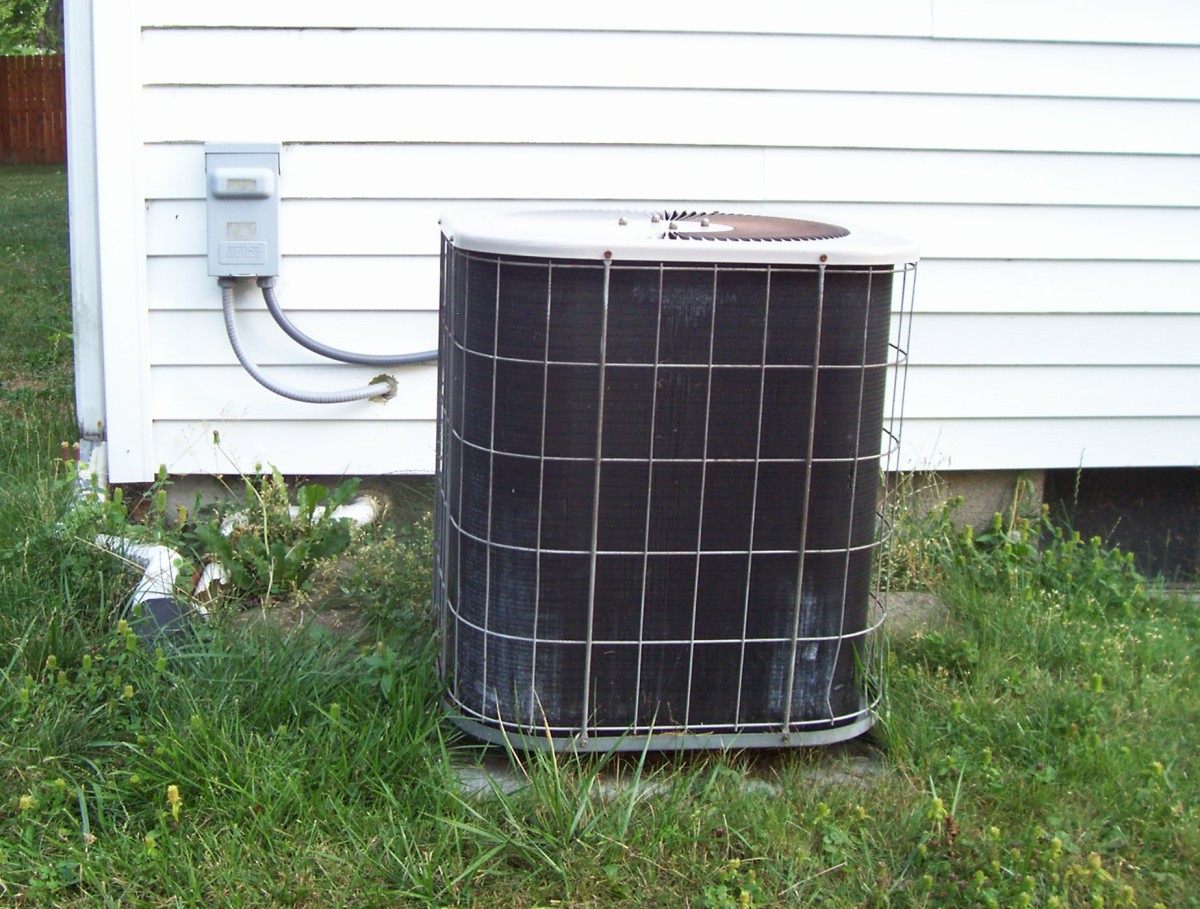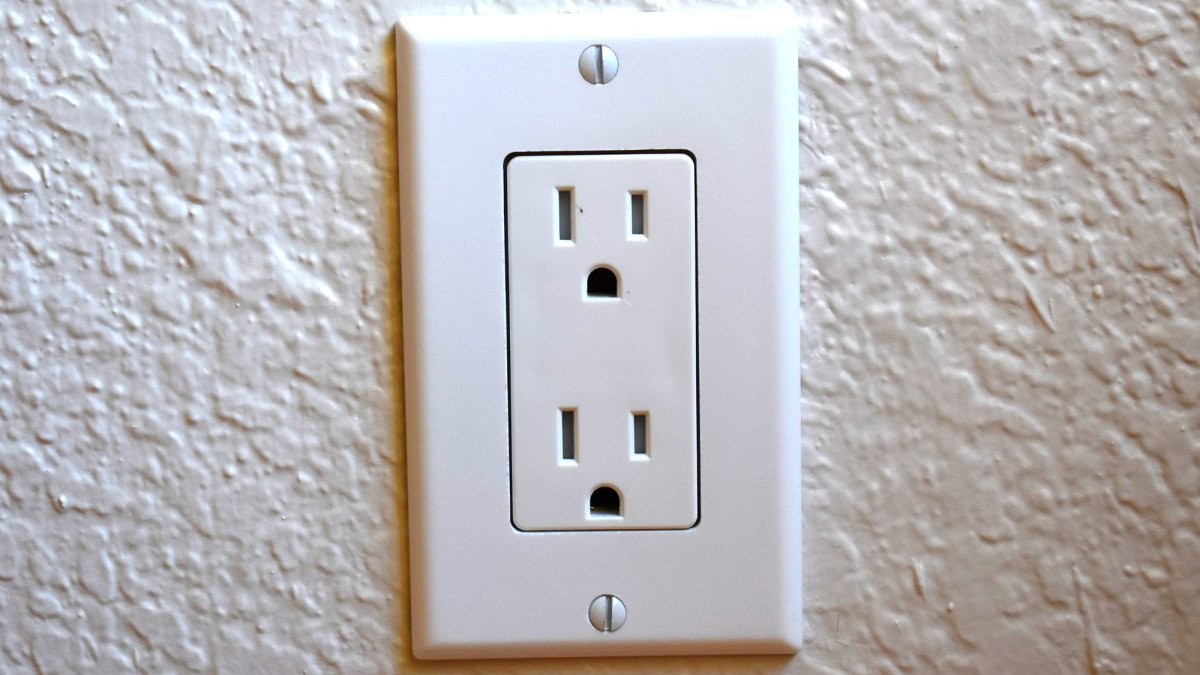Selecting the Best Tile for Your Floor
Finding the right choice among a large selection of available tile.
If you are new to the world of floor tile and want to avoid some common "traps" that people fall in to then read on. There are many, many selections of tile out there. Too many people make their decisions without enough information or maybe - bad information. Let's proceed!
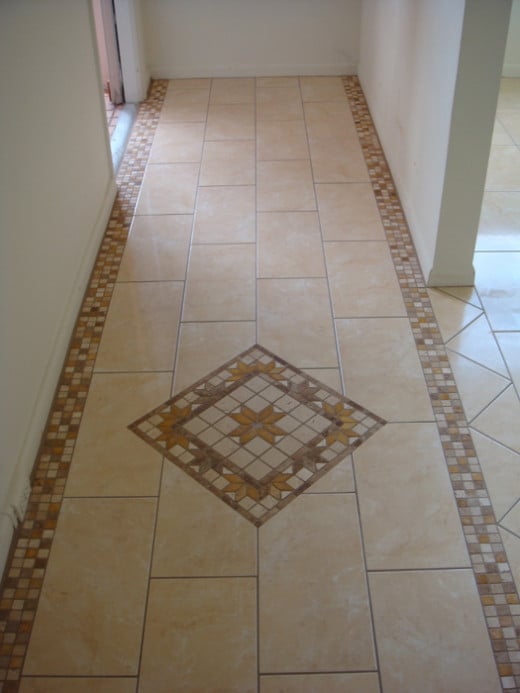
Get answers from a good source.
When exploring the world of tile, you call pull up much information. In this "information age", just validate the information that you get. If you are talking to a contractor to do your tile, make sure that person is a "tile" contractor or at least has a good track record with setting tile.
There are many good installers out there. Unfortunately, there are several out there that just don't know for sure or want an easy install for themselves, leaving the home owner with problems a year or two later.
Being involved with the flooring industry, I will have people argue with me from time to time about the information that I give them because they either read something different or talked to a contractor who claims to have years of experience. The key here is when someone tells you something they should be able to tell you why it is that way.
Some common problem areas are:
- Someone wants to set tile on plywood. Don't do this! Tile has to be set on a mud bed, sheets of cement board, or Ditra mat, (made by Schluter). The reason? Plywood is made of wood. Wood expands and contracts with humidity changes. Adhesive mortar for setting tile is not designed to move with humidity changes. If one surface moves and another one doesn't you have loose tile!
- All 12" x 12" tile cracks. This is not true! Tile cracks for one of two reasons. Either the tile was cracked already or somewhere in the installation process there was an air pocket. If the floor had a dip in it and it wasn't addressed or one of the tiles didn't get enough adhesive on it then yes, it will probably crack no matter what size it is.
- Some say that using a sealer is a waste of money. Only if you have a porcelain or porcelain coated tile, then you would not want to seal the tile. You definitely want to seal the grout though.
- Some say that cheap tile is as good as higher priced tile. I say, rarely. If you choose a grade 1 tile then all of the tile are probably not quite the same size. In grade 2 or better they will be. You then need to look at the hardness rating on the tile. You will want a PEI rating between three and five. Three is adequate for residential and four and higher is suitable for commercial applications. Home centers often have "special buy" tiles at an attractive price. If it is at least grade 2, has a PEI rating of 3 or higher, and is a suitable color then grab it!
- Tile sites like Dal Tile, Marazzi, and MSI to name a few, will always be good resources. After all, they sell tile and want their tile to perform well. Businesses like Custom Building Products or Mapei who sell tile set products will have phone numbers stamped on their products for consumer questions. Again, a very good source of information.
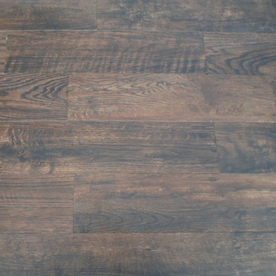
Some tile selections and characteristics.
Here are some of the more popular floor tile selections today and the characteristics of each:
Porcelain - First of all, let me clarify a misconception here. There is porcelain tile and then there is porcelain coated tile. And yes, there is a difference. Porcelain tile is a very hard tile and is mainly used in commercial locations like stores and businesses with heavy traffic, including vehicle traffic. It will be the same color all the way through so if it chips, the color revealed will be the same. It can be installed outside in nearly any climate.
Porcelain coated tile is different. This tile is a ceramic tile with a porcelain coating on it. This drastically reduces the cost, making it more appealing to home owners. Both of these tiles will be permanently sealed. If they have a sealer put on them, the sealer can't be absorbed and it will flake on the surfaced until it all falls off. This can be unsightly for a while.
Porcelain coated tile should not be installed outside in climates that are very cold. Moisture will be absorbed through the side and when the moisture freezes, it will pop through the surface. On the good side both of these tiles are basically maintenance free.
Quarry Tile - Quarry tile is very similar to brick in texture. It has a warm look to it and is very similar to it's cousin, terracotta. These tiles are fired at a lower temperature than ceramic tiles which makes them a little softer. These tiles can be installed inside or out but should be sealed.
These tiles are very porous and when they are set in adhesive, they will absorb the moisture very quickly, sometimes making the adhesive weak. It is advised to soak the tiles in water just before setting them or buying an adhesive that is formulated for them.
Ceramic - Ceramic tile is a basic fired tile with a glazed coating on it. As mentioned earlier, these tiles come in grades. Be sure to select at least grade 2, otherwise you won't have straight lines with your rows of tiles. Lower grade tiles can be set in a "bond" or brick pattern which is very pleasing. These tiles should be sealed to help protect them.
Marble - Many people are attracted to the beauty of marble tile. They are very pleasing to the eye. If you are planning on purchasing marble, be advised of a couple of things. First, marble is polished, making it shiny. You will need to seal marble, otherwise it can stain. Like quarry tile, marble is absorbent and will absorb anything. Another thing is when you grout this tile you will want a non-sanded grout. Why? If you were to use sanded grout on this tile it would scratch it. The stone is very soft.
Marble should be avoided in entryways or bathroom floors. When it is wet it becomes very slippery. Like quarry tile, you will want to wet the tiles or use an adhesive formulated for natural stone so that the mortar remains strong.
Travertine - Travertine tile gives a nice, natural look. It usually is offered in sizes of 18" x 18" for structural integrity purposes. Like marble, quarry tile, or any other natural stone tile, it should be wetted down before adhering or a special adhesive should be used designed for natural stone.
Slate - Slate is another natural stone choice that is usually very economical. Slate offers a very natural look. Slate can be purchased in a rather consistent color or purchased as "earth gauged" which will give it a more rustic look. I do like to caution people on using slate though. Because of the unevenness of the stone, it is a little more difficult to install and when completed, has an uneven surface. If you have furniture in a room with a slate floor, the furniture will "rock" with the unevenness.
When setting slate tile, it is good to have a straight edge that is about five feet long or so to insure that the tops of the tiles are relatively even. Most people get a little frustrated with this if they aren't aware.
If you like the natural look of slate but don't want the unevenness you can find ceramic or porcelain coated tiles that have a slate look. This makes installation much easier.
There are a few other types of tiles used as well like concrete, Onyx, etc.
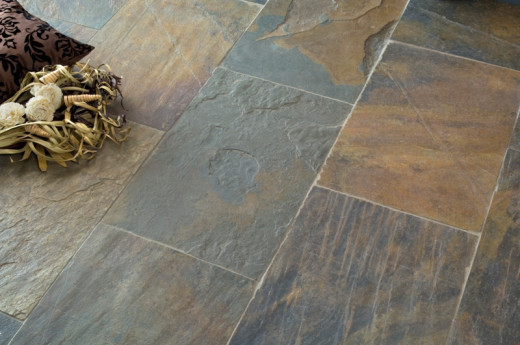
Wrapping things up.
I have touched on several areas where tile shoppers have been misinformed. When a home or business owner makes a choice to install or have tile installed, it is a choice that isn't easily changed when things go wrong. What's more, you certainly don't want to hand someone your hard earned money just to have problems a year or two later.
The best prevention advice that I can give you is do your homework. Don't hesitate to call customer service numbers for tile companies as well as tile set material companies that make things like adhesive, grout, etc. Again, these folks want their products to perform well and most of them will invite questions about their products.
A good many tile setters are the same way. If you ask them about other installs, they usually are proud to show you pictures of their creativity. If they get defensive with questions then I would beware!
If you want to try to install something yourself, many of the large home centers will offer free clinics to give you tips and pointers on how to be successful.
I wish you the best of luck with your home improvement!





